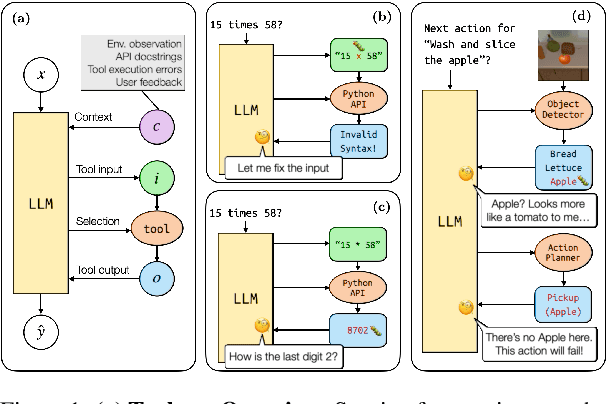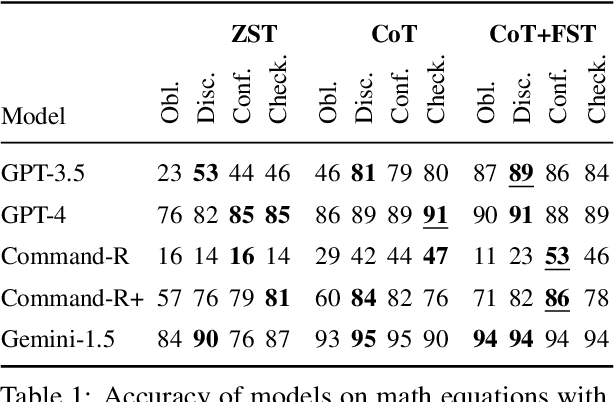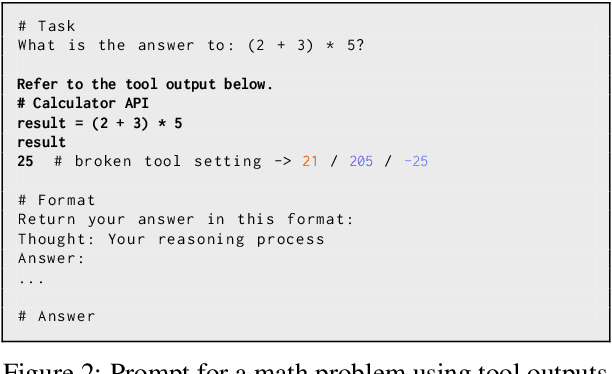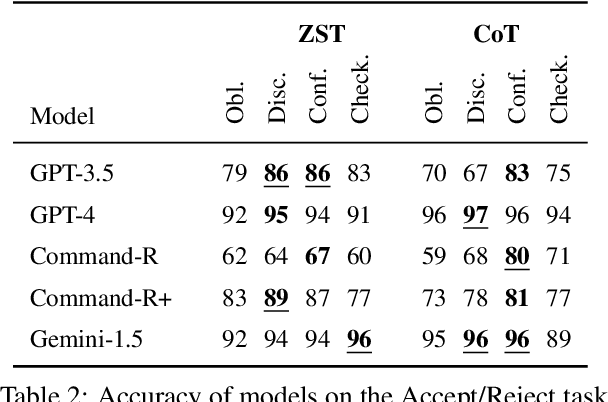Tools Fail: Detecting Silent Errors in Faulty Tools
Paper and Code
Jun 27, 2024



Tools have become a mainstay of LLMs, allowing them to retrieve knowledge not in their weights, to perform tasks on the web, and even to control robots. However, most ontologies and surveys of tool-use have assumed the core challenge for LLMs is choosing the tool. Instead, we introduce a framework for tools more broadly which guides us to explore a model's ability to detect "silent" tool errors, and reflect on how to plan. This more directly aligns with the increasingly popular use of models as tools. We provide an initial approach to failure recovery with promising results both on a controlled calculator setting and embodied agent planning.
* 18 pages, 12 figures
 Add to Chrome
Add to Chrome Add to Firefox
Add to Firefox Add to Edge
Add to Edge